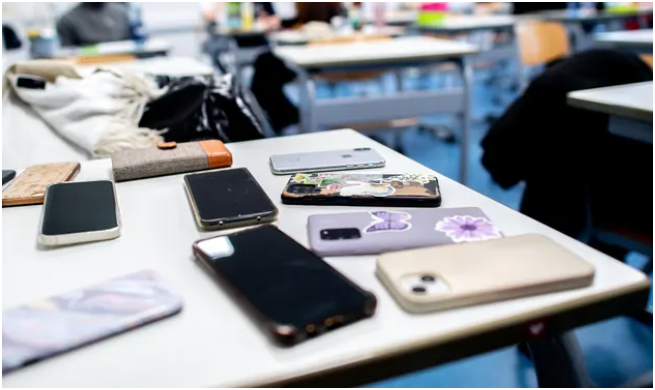Study Reveals Impact of Smartphone Ban in Schools on Student Well-being
In an age dominated by technology, smartphones have become ubiquitous, profoundly influencing various aspects of our lives. However, their presence in educational settings has sparked debates about their impact on student learning, attention, and overall well-being. To address these concerns, many schools have implemented bans or restrictions on smartphone use during class hours. This article explores the findings of a recent study examining the effects of smartphone bans in schools on students, shedding light on both the benefits and challenges associated with such policies.
The Rise of Smartphone Bans in Schools:
With the proliferation of smartphones among students, educators and policymakers have grappled with the question of how best to manage their presence in schools. Concerns about distractions, cyberbullying, and academic dishonesty have prompted many schools worldwide to enact policies restricting or prohibiting smartphone use during instructional time. These policies vary in scope and enforcement, ranging from complete bans to partial restrictions or designated “phone-free” zones within school premises.
The Study:
Methodology and Findings: The study, conducted by researchers from leading educational institutions, aimed to assess the impact of smartphone bans on student behavior, academic performance, and social-emotional well-being. Utilizing a mixed-methods approach, the researchers surveyed students, teachers, and parents, collected observational data, and conducted interviews to gather insights from multiple perspectives.
Findings from the study revealed a nuanced picture of the effects of smartphone bans in schools. On one hand, many educators reported a reduction in classroom distractions and disruptions following the implementation of smartphone bans. Students appeared more engaged during lessons, participation levels increased, and teachers noted improvements in overall classroom dynamics. Furthermore, instances of cyberbullying and academic dishonesty declined, creating a safer and more conducive learning environment.
However, the study also uncovered several challenges associated with smartphone bans. While some students adapted well to the new policies and reported feeling less stressed and more focused, others struggled with feelings of withdrawal, anxiety, and social isolation. For many students, smartphones served as a source of social connection and emotional support, particularly during breaks and free periods. The sudden restriction of smartphone use left some students feeling disconnected from their peers and unable to cope with boredom or loneliness.
Implications for Student Learning and Well-being: The findings of the study have significant implications for educators, policymakers, and parents concerned about the impact of smartphones on student learning and well-being. While smartphone bans may effectively mitigate certain distractions and negative behaviors in the classroom, they also raise questions about students’ social-emotional needs and the importance of balance in educational policies.
Educators must strike a delicate balance between minimizing distractions and fostering a supportive and inclusive learning environment. Rather than implementing blanket bans, schools may consider adopting more nuanced approaches, such as establishing clear guidelines for smartphone use, providing education on digital citizenship, and incorporating technology into classroom instruction in meaningful ways. Moreover, schools can invest in alternative strategies for promoting student engagement and well-being, such as active learning techniques, collaborative projects, and mindfulness practices.
Furthermore, parents play a crucial role in supporting their children’s digital literacy and responsible smartphone use. By modeling healthy screen habits, setting clear boundaries, and engaging in open dialogue about technology, parents can help their children develop the skills and self-regulation needed to navigate the digital world safely and responsibly.
The debate over smartphone bans in schools underscores the complex interplay between technology, education, and student well-being. While smartphone bans may offer certain benefits in terms of reducing distractions and fostering a focused learning environment, they also pose challenges in terms of students’ social-emotional needs and digital literacy. Moving forward, educators, policymakers, and parents must collaborate to develop holistic approaches to managing smartphone use in schools, ensuring that policies are balanced, evidence-based, and supportive of student learning and well-being in the digital age.
Stay informed with the latest updates-click here
